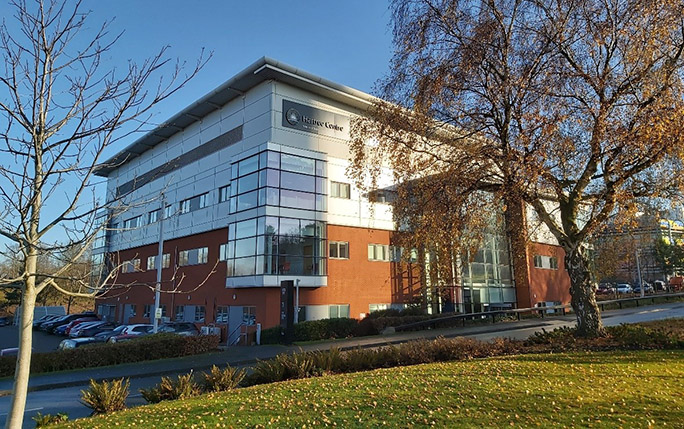Felix Soubelet’s secondment at IBM Research

As part of the LIV.DAT Centre for Doctoral Training, all students are required to do a secondment with an industrial partner on one or more of the themes of the CDT. The secondment’s work should be unrelated to their PhD project to broaden the student’s skills.
LIV.DAT student Felix Soubelet spent three months working in IBM Research based at the Hartree Centre in Sci-tech Daresbury, and described the opportunity as “Coming across an offer for an internship position at IBM Research within the HPC & Cloud team working on energy efficiency for exascale systems felt too good to be true. Add to that a great coffee machine and a welcoming work environment, and you’ve got yourself the dream internship”.
The project being in its early stage, nothing was set in stone and Felix was given the opportunity to influence both the technical approach as well as the direction to steer the project towards to. “I was pleased to be given this level of trust and consideration and, after quite some meetings, dove into my part. For three months, I worked on a hardware-and-software-side data collection, monitoring, analysis and predictive product for IBM HPC systems. We aimed at using runtime data from all possible sources into deep learning models to create optimization feedback loops into software and hardware systems, with energy efficiency in mind as a prime goal. More realistically, I led a three-month long battle with frameworks, documentations, machine, and sometime my own brain. I have learned about HPC systems, IoT devices, APIs, different databases, code optimisation and deep learning (and you, where do you stand in the TensorFlow vs PyTorch debate?)”, he described his work at IBM.
Felix said he felt both satisfaction from the work he has done and frustration that it would probably take him no more than a month to reproduce what he did now that he’s learnt how to. The two final weeks of the internship were a rollercoaster: “From racing to tie up to a product I could present and hand over, to compiling results, implementing new interesting ideas the team came up with (why are great ideas abundant when one gets close to a deadline?) and reviewing documentation. Regardless, I ended up presenting my work to the group and left behind a tool that others will harness, with (hopefully) a very decent documentation.” Felix was very pleased with the atmosphere in his team and is thankful for the support, help and guidance he received. He described IBM Research people as a delight to talk to and work with.
“Three months working with great colleagues go by very fast, and when the time came to leave, I wished I could stay much, much longer. The skills I have learnt at IBM will be put to good use in my PhD and I am grateful to IBM for providing this opportunity. I want to give a special thanks to my supervisor Vadim Elisseev for his guidance, and to my colleague Robert Tracey for his continuous attention, help, and support. I hope this project goes far and, maybe, to work with IBM Research again.” Felix concluded.